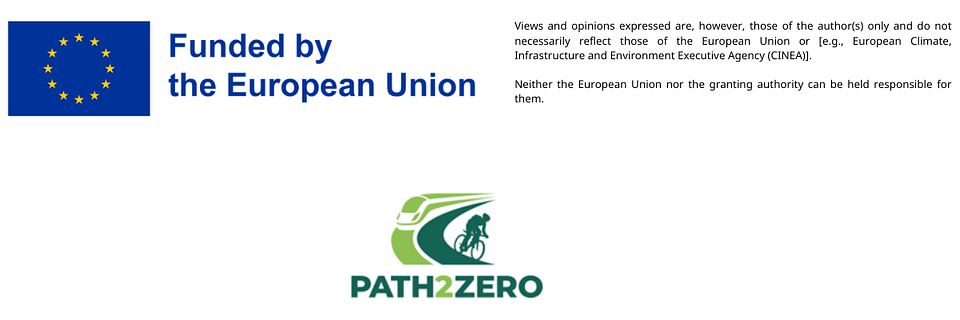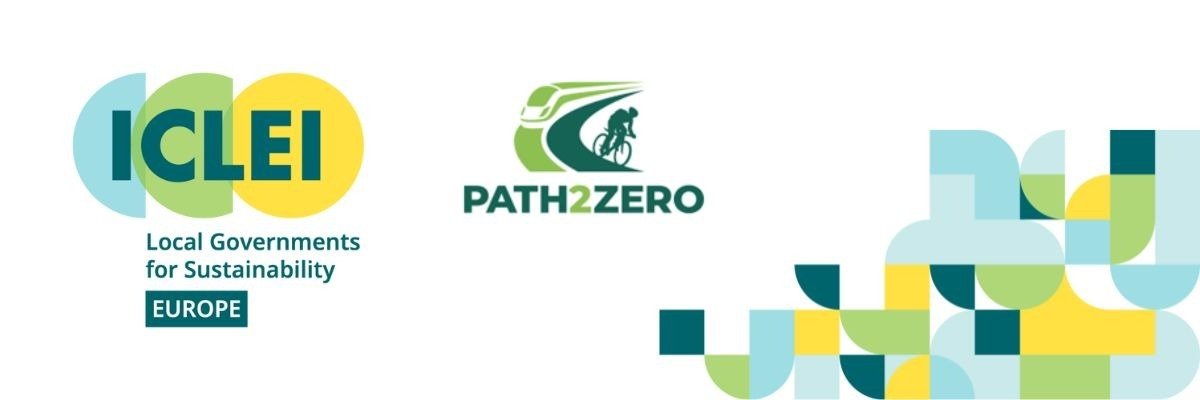Brussels, 18 September 2025
PATH2ZERO, a new Horizon Europe project, is stepping up to cut transport emissions and support the EU’s climate targets. The project will provide accurate data, realistic modelling, and actionable roadmaps to bridge the gap between current transport policies and the EU’s goals of reducing greenhouse gas emissions by 90% by 2040 and reaching net zero by 2050.
The European Union has successfully cut emissions relative to 1990 levels across all economic sectors, except for one: transportation. Emitting more than one billion metric tons of carbon dioxide equivalent (GtCO₂e) each year, domestic and international transportation have become the biggest source of emissions in the EU, accounting for 29% of the bloc’s greenhouse gas emissions in 2022.
Despite Europe’s climate leadership and commitments under the Paris Agreement, transport policy has lagged behind, held back by the sector’s economic weight. As a result, current measures fall short of the decarbonisation targets set in EU Member States’ Nationally Determined Contributions (NDCs). Recent policy developments, including the European Commission’s ‘Fit for 55’, a set of proposals aimed at reforming EU climate and energy policy, have underscored the urgency of stronger action.
From daily commutes to the delivery of goods, transport affects every aspect of life, meaning the stakes for citizens, cities, and economies are high. Achieving net-zero will mean cleaner air in cities, more liveable and breathable streets, and fairer access to mobility for every person. It is central to Europe’s role as a global leader in climate action. By delivering accurate data, realistic modelling, and actionable roadmaps, PATH2ZERO has already mapped out transport policies across EU Member States, Norway, and the UK aimed at creating the first-ever unified knowledge base on transport emissions and policy performance.
Building on this, the project will develop advanced tools to project transport activity and emissions up to 2050, giving policymakers a clear way to benchmark progress, compare countries, and identify what really works.

Grounded in collaboration with 12 partners across Europe, from industry and research to academia and civil society, PATH2ZERO is co-creating ambitious yet practical pathways to keep the EU on track for net zero. Dimitrios Milakis, Senior Researcher in Transport Innovations and Society at the German Aerospace Center and Coordinator of PATH2ZERO, commented:
“The climate crisis demands coordinated and ambitious action, and PATH2ZERO is one of them. We are not just modelling pathways, but co-designing realistic solutions together with policymakers, industry, and civil society. In this way, we help Europe move faster towards cleaner, more resilient, and fairer mobility."
Learn more about how PATH2ZERO is accelerating net-zero transformation by advancing Europe’s transport pathways and cross-sectoral synergies on the PATH2ZERO website.
About PATH2ZERO:
Our mission is to advance the transition towards a net-zero, climate-resilient transport sector by creating a transparent, consistent, comprehensive and user-friendly knowledge base. This base will equip the climate community to develop, evaluate and benchmark diversified, granular and tailored net-zero, climate-resilient transport pathways, by incorporating cross-sectoral assessments and fostering international collaborations.
The project’s mission has been to close the gap between climate awareness and individual action, co-creating tools and insights with and for European citizens.
The PATH2ZERO consortium brings together: Deutsches Zentrum Fur Luft - Und Raumfahrt Ev (Germany), Trt Trasporti E Territorio Srl (Italy), Teknologian Tutkimuskeskus Vtt Oy (Finland), Universidad Politecnica De Madrid (Spain), Ethniko Kentro Erevnas Kai Technologikis Anaptyxis (Greece), Kti Magyar Kozlekedestudomanyi Es Logisztikai Intezet Nonprofit Korlatolt Felelossegu Tarsasag (Hungary), ICLEI European Secretariat Gmbh (Germany), Rupprecht Consult-Forschung & Beratung Gmbh (Germany), University of Leeds (UK), Transportokonomisk Institutt (Norway), Ecole Nationale Des Travaux Publics De L'etat (France), Universita Degli Studi Di Padova (Italy).



